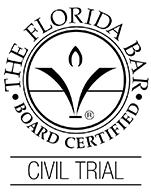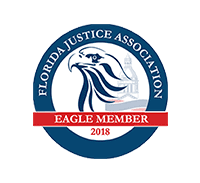While there is no “average settlement” for a wrongful death lawsuit, the value of a financial award will depend on expenses and the beneficiaries’ level of dependence on the loved one. Compensation for wrongful death lawsuits typically include your loved one’s lost financial support, funeral and burial costs, medical expenses, and your family’s pain and suffering.
When you lose a family member to negligence, the last thing you think about is taking legal action. You don’t want to endure the legal process, and it’s understandable why. However, seeking compensation is one of the more essential things you can do in the aftermath of wrongful death.
How Much a Wrongful Death Lawsuit is Worth
Wrongful death cases are inherently complex, and each case is unique. For this reason, settlement valuations can vary wildly. These factors, among others, can impact what a wrongful death case is worth:
- The age of the loved one who passed
- The number of dependents (individuals financially reliant on the loved one)
- The lifetime income of the decedent
- Whether or not the case involves punitive damages
- The outcome of settlement negotiations
Working with a wrongful death lawyer could help you better understand the value of your case. This way, you could be more prepared during the settlement negotiations process.
Types of Compensation Available in a Wrongful Death Case
Wrongful death compensation is broken up into three categories, economic damages, non-economic damages, and punitive damages. Knowing these categories is important to understanding how much a wrongful death case is worth.
Compensation for Economic Damages
Economic damages are quantifiable; they have a set value for money you and your family lost because of the loss of your loved one. For instance, economic damages can cover the following:
- Lost income your loved one made and would have made
- Medical expenses incurred from the date of the injury until the death
- Funeral and burial costs, including plot and casket expenses
Your lawyer can prove economic damages and request compensation for the total value lost using bills, receipts, and other documentation.
Compensation for Non-Economic Damages
Non-economic damages can be challenging to determine. The jury looks at the emotional distress you suffer from because of the death. They may consider pain and suffering, loss of companionship, and other damages that are not easy to calculate.
While compensation for your suffering is not going to make up for what you’ve lost, the final award will help in the long run with many of the financial struggles you face.
Compensation to Punish the Negligent Person
In Florida, the jury may also award you punitive damages. While economic and non-economic compensation serves to offset loss and financial hardships, punitive damages punish the wrongdoer.
Punitive damages exist in cases where malicious or intentional actions cause wrongful death. For instance, if you lose your loved one because of a violent act, the courts may force the defendant to pay you punitive damages as a consequence of his or her actions.
Wrongful Death Compensation By Involved Party
The type of relationship you had with the person who passed away affects the kinds of damages you can receive. Not every individual is entitled to both economic and non-economic damages. These are the types of damages each individual can receive:
- Spouses: Spouses qualify for non-economic damages like loss of companionship and pain and suffering.
- Minor children: Minor children can recover damages for the loss of parental companionship, guidance, and instruction – provided they have no surviving parents. They also qualify for non-economic damages, like pain and suffering, too.
- Parents: Parents qualify for pain and suffering damages if they lose a child.
Every individual in a wrongful death case qualifies for “lost support and services.” This covers the financial support provided to a survivor by the person who passed away. In addition, compensation for medical, funeral, and burial expenses will apply to whomever paid them.
Who Can Pursue a Wrongful Death Case?
Those pursuing wrongful death compensation are known as survivors. Under Florida law, this group of individuals includes the “decedent’s spouse, children, parents, and, when partly or wholly dependent on the decedent for support or services, any blood relatives and adoptive brothers and sisters,” with a few exceptions.
In plain English, this definition means the following groups can receive compensation:
- Children
- Parents
- Spouses
- Blood relatives, siblings, and adoptive siblings – provided they were financially reliant on the decedent
A caveat applies to children receiving wrongful death compensation. If a child was born out of wedlock:
- They can receive compensation if their mother passes away
- They can receive compensation if their father passes away – provided the father was responsible for supporting the child
These rules are strict, meaning the following parties typically cannot pursue compensation:
- Boyfriends
- Girlfriends
- Fiancées
- Close friends
Wrongful Death Cases Are Led By Personal Representatives
When a person passes away, their financial duties and obligations are passed on to a personal representative. This individual or party has the duty to oversee:
- Debts
- Finances
- Personal belongings, like a house, car, or stock holdings
- Distribution of these belongings to rightful heirs
Personal representatives have another duty, too. They’re responsible for filing a wrongful death lawsuit. Under Florida law, a decedent’s survivors cannot file a wrongful death lawsuit unless they are the personal representative. The representative files the lawsuit and distributes compensation to those who lost their loved one. A personal representative can work with a wrongful death lawyer during this process.
How Is a Personal Representative Appointed?
In Florida, the spouse of the decedent has the first claim to the position of the personal representative. If the decedent has no spouse, or the spouse chooses not to assume the position of the personal representative, another person must be appointed. This responsibility falls on the decedent’s heir. If they cannot agree on a personal representative, the court can appoint one on their behalf.
Contact a Wrongful Death Lawyer Today
Our Lakeland wrongful death attorneys at Dismuke Law are here to help you pursue the compensation you deserve. We’ll handle the legal matters, so your family can focus on grieving and being there for each other during this challenging time.


![cftla-member[2]](https://www.1800askdave.com/wp-content/uploads/2022/03/cftla-member2.png)
![cftla-member[3]](https://www.1800askdave.com/wp-content/uploads/2022/03/cftla-member3.png)










